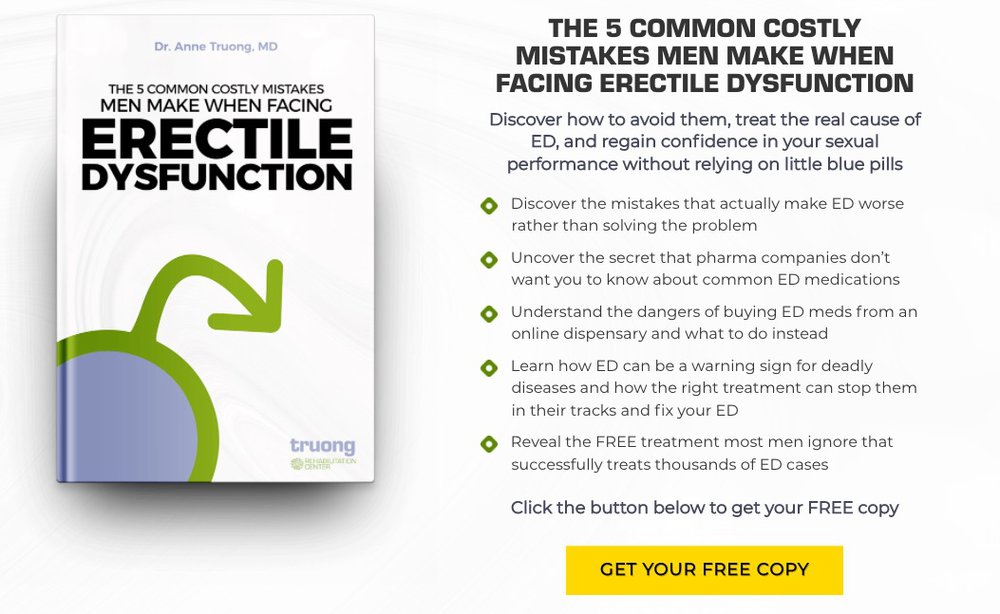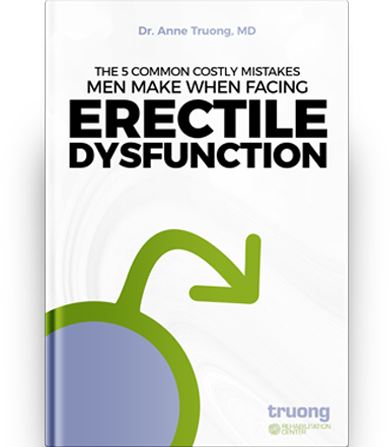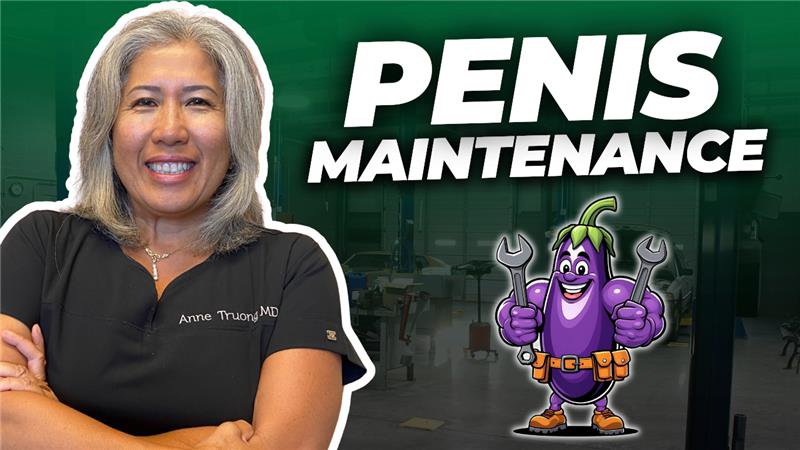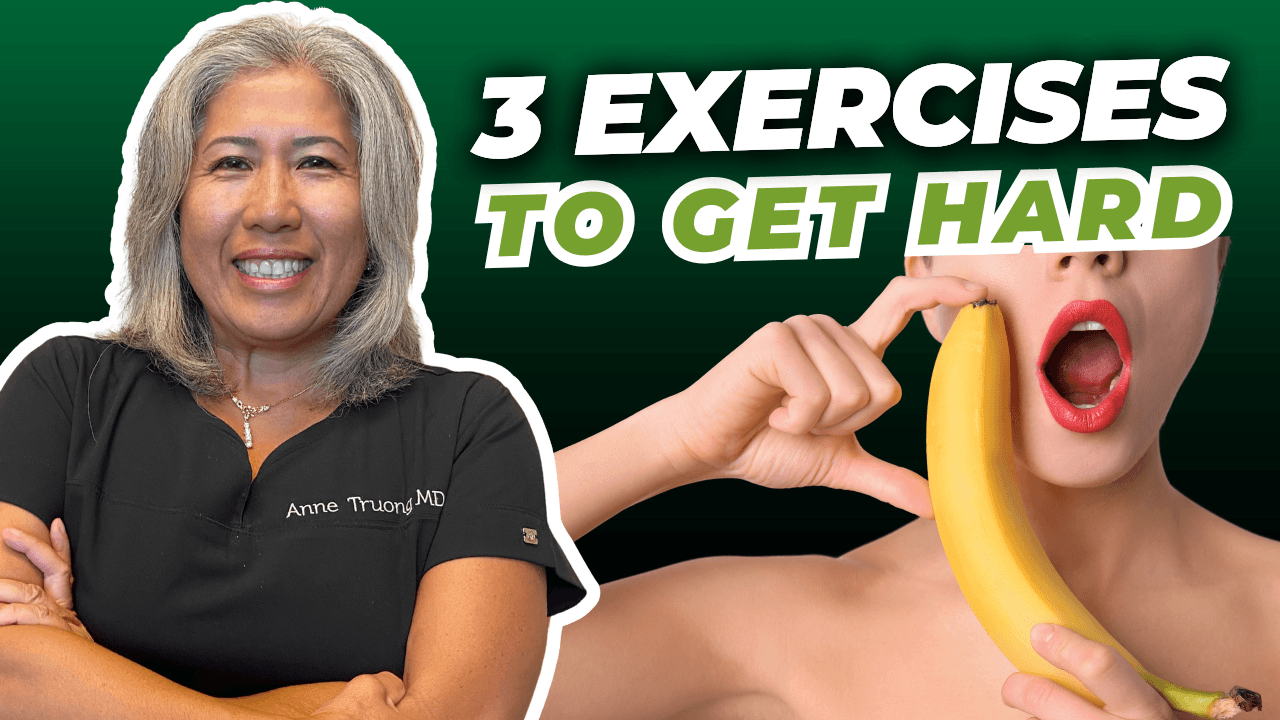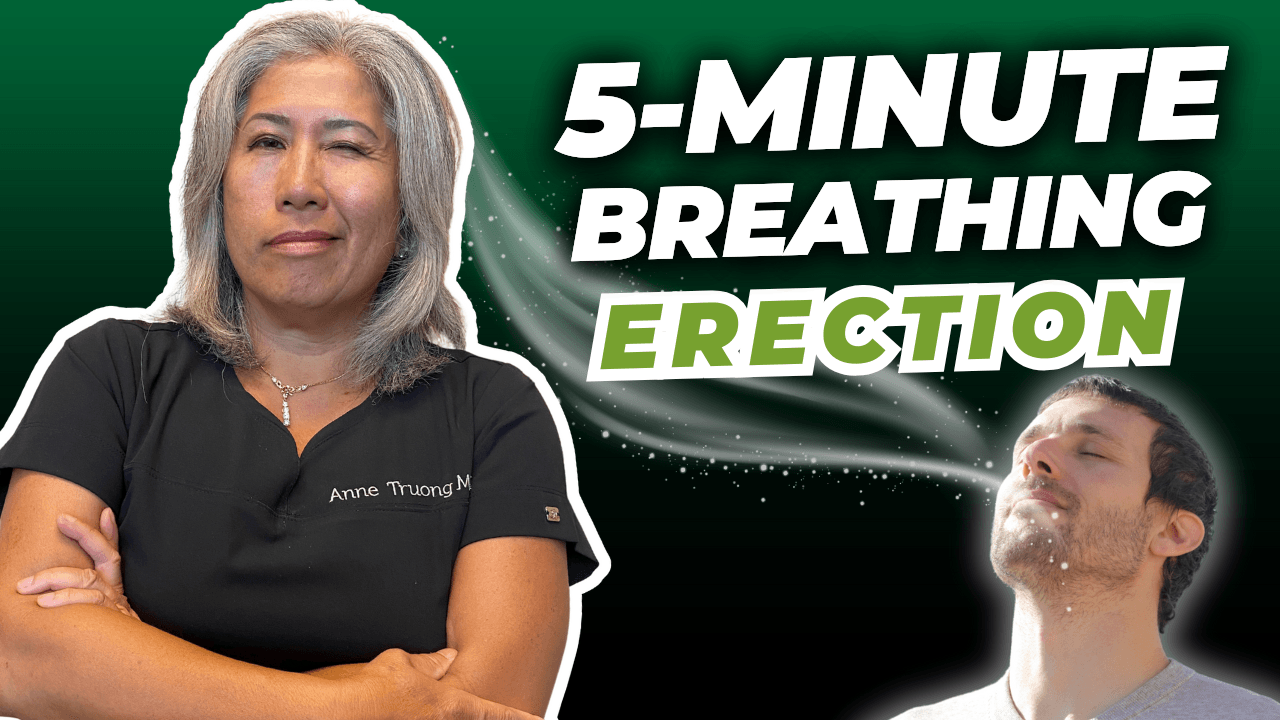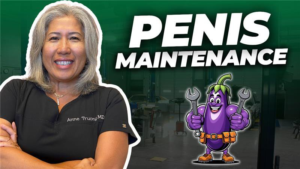The key to a fantastic intimate relationship is each partner being fully self-expressed, sharing the truth of who they are, and learning to welcome the reality of their partner. In this episode, Dr. Stockwell and I will help you increase emotional intimacy in your own relationships by discussing:
- What is emotional intimacy in a relationship, and how to express it without blame.
- Know what emotions intimacy is and how to create it
- Identify where you and your partner get stuck
- Access tools to un-stick yourselves
- Expand the pleasure in your relationship
- How to deepen your emotional connection to your partner
- Plus, reignite the excitement & passion in your relationship
Emotional Intimacy Episode Contents
- Episode Video
- Introducing Dr. Alexandra Stockwell
- Transforming The Emotional Connection and Sexual Connection
- Starting The Communication Process
- Getting The Courage to Start
- Creating Emotional Intimacy
- How To Approach Your Partner
- Expanding The Pleasure In Your Relationship
- Tools To Un-Stick Yourselves
- Reigniting The Excitement And Passion In Your Relationship
- About Our Guest, Dr. Alexandra Stockwell
- Episode Links and Resources
Emotional Intimacy Episode Video
Introducing Dr. Alexandra Stockwell
Anne: Today, I am so excited because we have a special guest and her name is Dr. Alexandra Stockwell. She's a medical doctor and she is the intimate marriage expert. Also known as the intimacy doctor, she specializes in showing couples how to build beautiful long-lasting passionate relationships.
She's also a bestselling author of the book Uncompromising Intimacy and host of the highly acclaimed The Intimate Marriage Podcast. By the way, I just subscribed to that today as well. I'm so excited to have her here, because she comes with us with having been a wife of 25 years and the mother of four.
She believes the key to passion and fulfillment, intimacy and success should not be compromised and is being unwilling to compromise.
I love that, by the way, because when both partners feel free to be themselves and know how to love and be loved for exactly who they are, relationship is juicy, nourishing, and deeply satisfying.
Oh my God. After I read that, I'm like, "I want that relationship." I don't know why anyone shouldn't be in that relationship, and Dr. Stockwell will get you there. Today, I'm so excited to talk with her and tap into her expertise on emotional intimacy. I didn't know what that word meant until I actually met her, and we only met each other maybe a few months ago, but I feel like we connected on a such intellectual and also collegial relationship that I'm really excited to have her on the show today. Tell us a little bit about yourself.
Alexandra: Okay. Well, thank you so much for that introduction. I feel like you and I are the yin and yang of sexual relationships, because you are so brilliant and innovative and so successful in handling problems, starting anatomically and physiologically and going from there, and I'm really starting at the other end of things, with communication, presence, and how to listen, how to share. I really love our dance and it brings me a lot of pleasure, how collaborative and mutually admiring we are of one another, given that we're looking at things in such a different lens. I'm really excited for this conversation. I just wanted to say that.
Transforming The Emotional Connection and Sexual Connection

Alexandra: Now, in terms of saying something about me, yes, so I'm a physician. I met my husband the first week of medical school. He's a physician. We both have all of that professional training, and I have done many different trainings related to relationships, communication, intimacy, sexuality. I also want to say that a lot of what I share comes from my own personal experience, either because I discovered it in my own relationship, or I learned about it in a training and applied it in my own relationship.
It's very important for me to walk my talk, and I guess what I want to say is that our sexual relationship was not always … It wasn't the best part of our relationship for some time. Now, I don't know what the best part of our relationship is, but our sexual life definitely is one of the aspects. Yes, there's training, there's theory, there's all kinds of things, and I'm really interested in sharing today out of my lived experience of transforming the emotional connection and sexual connection I have with my husband, and doing so for hundreds of other couples.
There's a way in which evidence-based medicine is so important, but when we're talking about intimacy and sexuality and how we touch someone and how we are touched, I think it's also really important not to make it too clinical, but to personalize and insole it because that's where the experience is happening.
Anne: Absolutely. I feel that as I'm seeing men and women with sexual challenges, and even though I can restore their physical functioning again, there's still that gap of communication and building up the relationship. Having seen a lot of men with erectile dysfunction, one of the things that I see as a challenge for them is that the first time that they realized that, "Oh, things are not working well in the bedroom," they're not talking to their partner or their wife.
The first thing they talk to is Dr. Google, and trying to find an answer from Dr. Google, and what to do. We both know that there's a lot of misinformation on Google, and unfortunately the first route is not talking to the partner or even talking to the doctor, but really ordering supplements that are not validated, or even ordering ED medication and going that route, but there's no initiation of communication between the man or the woman.
I'm sure the woman has challenges too, that she's not talking about it as well. What I see is a couple that are looking both opposite sides and the rift is getting bigger and bigger. He's pretending that he can cover his ED issue with medication, and she knows there's something going on, so that chasm is what we want to open it up and say, and connect that again. That is always a challenge in any marriage, particularly when it comes to sexual challenges, as well as particularly in couples that are probably mid-forties or even early forties, going into the fifties as well. Can you kind of elaborate what emotional intimacy is and how a couple can gap that communication?
Alexandra: Absolutely. I want to start more broadly and just say, this is a fact:
The majority of couples are much more comfortable having sex than having a conversation about sex.
That is true all the way through. That's not that a couple knows how to have a conversation about sex, and then they lose that ability once erectile dysfunction comes into the picture. No, that is the case already.
I guess what I want to say in this context is, if you are listening and either you or your partner is experiencing erectile dysfunction, well, this conversation is for you, but if you're not, this conversation is still you because, well, I'll just put it very simply. The data is very clear that couples who talk about sex, who talk about their experiences and what they want to change and how it felt, that is one of the predictors of a long-lasting, healthy sex life with someone.
Communicate With Your Partner
Alexandra: Nobody has any good reason not to continue to or begin to talk about sex. Now, how to do that. Well, let me first answer your question about emotional intimacy. The way that I think about emotional intimacy is that it's the willingness to reveal what's actually happening for you in a vulnerable way without blame or accusation, and so it's both the content of the communication, but even more so, it's how the communication is made.
I want to call attention to how I'm adjusting my voice. I'm talking a little bit more softly. This is the tone of voice that often comes with a more vulnerable share, which then builds intimacy. If I'm going to say, for example, "I wish our sex life were better." If I'm going to say that, my partner's going to feel attacked if I say it that way. I could say the exact same thing by saying, "I really wish that our sex life was better."
Those are the exact same scripts, but the response that you're going to get from your partner saying it the first way versus the second way are night and day. Maybe as you're listening, you don't want to get soft and slow. You don't need to do it the way that I'm modeling it. It needs to feel like it's really you who's talking, not that you're channeling me in that conversation, but you need to do your version a little slower, little softer, and have it feel like you're sharing something about your own experience, as opposed to pointing out your partner's inadequacy.
Anne: Wow, that is very, very powerful. Just resonating the tone of your voice and even your facial features, even though the words are the same, but the delivery is totally opposite, like you say. That is very, very powerful. I think you touched upon the next question I was going to ask. How do you talk about sex? Would you start with that particular question, directly, with that tone?
Alexandra: I love your questions. I just love your questions. No, do not start with what I said. Okay, if you are not in the habit of relatively comfortably talking about sex with your partner, then here are the ways to get started. First of all, you should both be fully clothed. Do not do this when you're about to have sex, during sex, when you've just had sex, it should not be while you're naked in bed. That is just too confronting, and unnecessarily so. There's no benefit.
Once you're used to having conversations about sex, well, sure, you can do it as you're both lying there in the bed, either before or after, or during, I suppose, but if this is new, I highly recommend that you're both dressed. You don't even need to be in the bedroom unless you need to for matters of privacy, so you're not overheard.
Start by saying what you appreciate, something you appreciate about your partner, about your relationship, about the life you've built together.
I'll just give an example. Like, "Honey, I just love you so much. It is so amazing. Look at where we started, and now here we are in this house with our family. You're such an amazing provider." You want to say true things. I'm giving very general things, but you can get specific. "I just love the way you laugh. No matter how I'm feeling, when you laugh in that full-bodied way, I just always feel calmer and happier myself."
Say something true. One second. You want to say something that you actually do appreciate about your partner, and say something positive about the relationship, and then say, "There's an area that I think could be better, could be as good as the rest of what I've just said. We haven't really talked about it before, but I wonder if you're open to hearing something."
Alexandra: Then, you want to give a chance for your partner to actually say yes and opt in. You do not want to steamroll anyone on this topic, no matter how nicely you do it. Then once your partner says, "Okay, yeah," then say, "I think our sex life, it's time to put attention on it," or, "I'd like to try a new position," or, "I've noticed that it hasn't been as straightforward as it used to be. I think it would be good for us to talk about it."
I want to point out that I'm starting with saying to your partner that you appreciate the partner, you appreciate the relationship. Are they available to talk about sexuality? Then, start with something gentle. This is not a time to say, "I wish you'd get an erection," or, "I'm sorry I suck at having erections." This is not intended to be depressing. It's hopeful, because you're putting attention on it, and so when you bring it up, it's more like an invitation than a negative report card.
Man Versus A Woman's Approach
Anne: I love that. The approach is everything. Would the conversation be the same coming from a man versus coming from a woman? Alexandra: It's a great question.
Anne: Would the dialogue be the same?
Alexandra: Yeah, so the way that I said it may well be more the way a woman would bring it up. If we're talking a heteronormative relationship, let me say how a man might bring it up. Something like, "Honey, you are the love of my life. I am so glad we found one another and are together, and we have had some pretty incredible sexual experiences." Obviously don't say it if it's not true, but if it is, go ahead. "I know that it's gotten … My body's changing, and I'd like to be able to talk about it."
In other words, be you. Don't try to be somebody else, but the important principle is to start with letting your partner know that you're glad to be in a relationship with them, that the reason you're bringing this up is so things can be better.
You're not bringing it up because things are bad and you're just acknowledging it.
Anne: Yeah. I like that approach and I love the way your tone is, and as an audience, as you're listening to this, copy that tone word for word, because that is very powerful. The way you say it is like, just the body language and the tone is so powerful.
Alexandra: I just want to add one more thing, which is, it's fine to say, "I want to have a conversation that we probably should have had a while ago. It's super awkward, but I think it's going to be worth it."
Getting The Courage to Start
Anne: How do you encourage the person in a relationship to get that courage to broach that subject? It's very uncomfortable and you always, you're afraid that, "Oh my God, my partner or my spouse is going to resent it and it's going to become into a fight." How do you get that courage to start that conversation?
Alexandra: Well, first of all, the key to this working is setting it up right, because everything that I've said so far is about setting it up so that it's more likely to be successful. That can bring courage, just knowing that. Second of all, you need to do what's going to work for you, so maybe you send a text and say, "I want to discuss something, I feel really nervous about having the conversation, but I'd love if we could talk tonight," or just, I'm giving techniques, but the bottom line is that if you care about your sex life, then find a way to have a positive, productive conversation about it. Even if you don't become a patient of Dr. Truong, did I say your name correctly? I guess I know your first name better.
Anne: Yeah, yeah, yeah. You said it correctly.
Alexandra: Okay. Even if you're not, which you should, obviously, if you have erectile dysfunction issues, but even if you were not going to and you did nothing differently, your sex life is going to be simpler and feel better to both of you if you have this conversation. If you're a more analytical person, do the cost-benefit analysis and let that be the way to find the courage.
Creating Emotional Intimacy

Anne: Wow. How do you create intimacy, emotional intimacy? How do you create that?
Alexandra: Yeah, so in my book, which you told me to bring a copy, so here it is. Uncompromising Intimacy. I spell out in detail the six keys to creating emotional intimacy, and they are to cultivate curiosity, embrace honesty, be kind, choose happiness, take responsibility, and seek growth. I did want to name them all, but I want to really focus on cultivating curiosity, because if you think of the experience of feeling in love, it is a time where you have so much curiosity.
You have attention on your partner and you want to know, where does that scar come from? What kind of vegetables did he or she like to eat? What were your dreams for the future? How would you define success? What countries have you traveled to? What kind of wine do you like to drink? We just have loads of questions in order to get to know our partner better. That is part of the experience of feeling in love.
Then we're together. Things become more routine. Things feel really safe and secure, and we naturally put our attention on other responsibilities, and that comfort and focusing on other things is fine, except that there's a cost to it because individual human beings continue to grow and evolve and have new experiences, new perspectives, and so things feel distant if you don't actually continue to get to know one another. It's not that you get to know one another at the beginning of the relationship and then you're all set, not if you want to experience emotional intimacy.
Emotional intimacy comes from being interested in who your partner is and who they are becoming, and also revealing who you are and who you are becoming.
The very simplest thing to do as a next step to having more emotional intimacy is to ask open ended questions, meaning-
Anne: You need to do this, even though you're married for 20 plus years, even more so. It's not just at the beginning of the relationship, right?
Alexandra: Absolutely. In fact, people who hear me say this at the beginning of the relationship, they're like, "What are you talking about?" They already have so many questions because they're in that phase, but no, this is really powerful after 15, 20, 35, 45 years of marriage, to just turn to your partner and say, "What was the most challenging part of this week for you? If you could be president of any country, which one would you choose and what policies would you implement? If you could have dinner with a celebrity, alive or dead, who would it be and what would you ask?"
Alexandra: In other words, the questions, they can be spiritual, they can be humorous, they can be deep and serious, whatever fits the culture of your relationship and whatever you're genuinely curious about, but the point is to ask an open-ended question, and what defines an open-ended question is that there's no right or wrong answer.
Whatever your partner shares is just him or her sharing the truth of what lives in their soul, versus a closed question, where, "What time are you going to pick up the kids tomorrow?" There is a definitive correct answer. "Four o'clock." Okay. There's nowhere to go with that question, but if it's, "What do you daydream about these days? What music or podcasts are you listening to on your commute now?" If you haven't been in the car with them on the commute for 10 years, you don't know the answer unless you ask, unless it's something that they've been telling you, in which case, ask a different question.
Challenges You Will Face
Anne: Right. What I find challenging, men are not … They're not usually open to those types of questions. I mean, I can just say from my husband. When we have a difficult conversation, it's hard for him to kind of express how he feels.
Men are taught when they're younger to suppress their emotion, their vulnerability, and as they're grown up, it's just innate in them. How do you get a man to open a conversation into open-ended vulnerability questions like that?
Alexandra: Yeah. If you're a woman and you're asking your husband, he may not answer right away, and so just let it go. Don't be annoying, and ask again the next day. It can take some time to thaw and warm it up, and I think it's really helpful to keep in mind exactly what you just said, which is that men are conditioned not to share their emotions.
High performing women are too, but it's a little bit of a different situation. Anyway, men are, by five or six years old, men already or boys are less expressive. It's part of the societal conditioning, even if in any particular family, it's not that way. It is important to keep that in mind.
Also important is to keep in mind that, probably related to what I just said, that it's been documented that it takes men longer to actually have the answer or the awareness of a response to an emotional question.
Asking, "What celebrity would you like to have dinner with?" Maybe they take some time, but maybe they just know right away, but if it's like, "How are you feeling now? What really bothers you about that?" Any kind of more emotionally deep question, you want to give the man more time to respond. I have seen this when I'm coaching couples, where I'll ask him a question and he doesn't have an answer right away, and so he might say, "I'll get back to you about that." I'll say, "No, it's okay. We can wait."
Sometimes the wait is long because the man is just not used to going inside to finding the truth, but it doesn't mean it's not there. It just means it takes longer. I really am emphasizing this, both so that any man listening can understand and be compassionate and not think it's some kind of a failure, but even more so, that women don't interpret it as a lack of interest or rejection of them, or … We can make it mean all kinds of things about what's wrong with the man, what he thinks is wrong with us, what's wrong with our communication, and, "If he really cared, he would tell me," but that is really not true. That's just what we're making up, because if I asked a woman that question, she would be able to answer it more rapidly, but that does not create moral superiority.
If what you want is emotional intimacy, you just need to find the compassion to give it time to thaw in order for the answer to come. If you are impatient or judgmental, it makes it harder for that answer to come. I just wanted to give like all the context to then say that my recommendation is, just be patient, and if it's not going to come today, ask a different question tomorrow.
Anne: Don't take it personal if he can't come out with an answer or something. Maybe it takes him time to process.
Alexandra: That's right. It takes time to process, and it's not fundamentally about you. I'll just add that it's often simpler to ask questions which are like asking for a memory. "When did you last feel really happy?" It's sometimes easier to answer that question than some more complex question, and this is very different than asking for intellectual opinions. If you ask for intellectual opinions, that does not create more emotional intimacy, and actually, I want to add, maybe some listeners will have heard of this.
I don't know if it's familiar to you, that years ago, there was an article published in the New York Times. I think it was, I forget the exact title, something like, 36 questions to ask someone you want to fall in love with. That may not be the title, but basically that couples who go through these 36 questions, and it's really exactly what we're talking about, because it creates emotional intimacy, that a couple that goes through those questions either knows they don't want to be together anymore, or they feel more in love and more connected.
How To Approach Your Partner
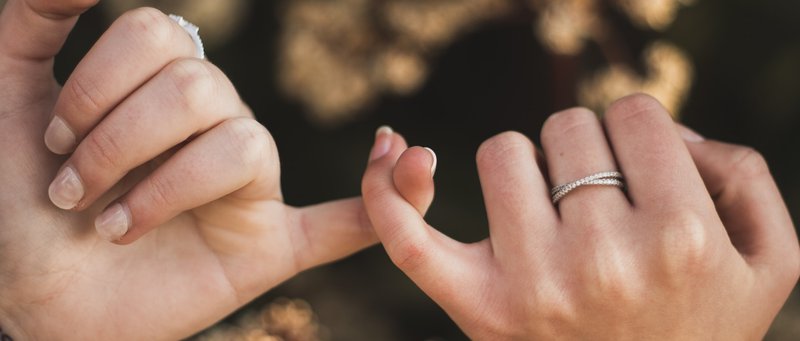
Anne: I did think of telling a story about my patient, and I hear this more common than not, is that, so the man has ED. He comes to see me and I restore his functioning again, but he's had ED for maybe five to 10 years, and during that time his wife or his partner had gotten used to infrequency or no intercourse at all.
Now he's getting functioning back, but then he's wanting to connect with her physically, and she says, "No, I am not interested. We haven't had any activity in a while. I'm fine with that, and that's it." My patient would go, "Well, what do I do? How do I approach this?" At that time, she's in her fifties too, and she's probably going through menopause issues as well, the physical discomfort, vaginal dryness, and urinary incontinence and those other stuff. She's probably kind of happy that she doesn't have to deal with it, but both you and I know that physical connection and sexuality and emotional connection is critical to relationship and could be restored until the day you die. Right? How would you suggest a man would talk, to be able to talk to his partner, so that way she can see where he's coming from?
Alexandra: Yeah. Well, I think that whole scenario happens as a result of many misconceptions in society, and honestly, by many doctors as well. I'm always very cautious when I say something like that, but it's true that in medicine we understand sexual function, but we don't understand sexuality as well as maybe one day we will. I say that because first of all, if you're in the situation where you have ED and it hasn't been healed and resolved yet, that is not a reason to be having less sex with your partner, because if you think you need a long enough strong erection in order for sexual pleasure to happen, you are misinformed.
That is based on an understanding that the way orgasms happen is there's some foreplay, there's a build, then there's ejaculation and then there's a refractory period, and that is definitely how many men experience their sexuality and orgasms and how some women do, but it is not fundamentally the way orgasm works in female bodies.
We've learned that from Masters and Johnson. That's the curve we see if we're lucky enough to have a sex ed class, but orgasm and pleasure is so much more nuanced, sophisticated, and intricate. For a couple where he can't contribute, let's say, a strong erection, then put your attention on sensual pleasure versus sexual pleasure. I happen to think they're very connected, but I'm just distinguishing them for ease of clarity in this conversation.
Learn to touch her in ways that feel really good with your hands, with your body, with your mouth, vary the pressure, the pace, the speed. You can use different oils for different massages.
There are ways to make love without penetrative intercourse that bring a tremendous amount of pleasure.
Is it the same thing as an intercourse-based love-making session? No, it's not. Is it really fulfilling? Does it get the oxytocin going? Does it create emotional intimacy? Is it able to make the relationship more vibrant? Absolutely.
Are you able to touch in ways that she thoroughly enjoys and experiences an orgasm without having an erection? Well, if the answer is no, focus on learning how, so that when you go to Dr. Truong and you get your ED handled, you just continue on where you left off. Now, if you haven't done that, which is the situation you described, and you just have focused on the ED, well, I recommend the same thing.
Learn to be affectionate in a way that she enjoys. Honestly, you don't need to start in the bedroom. Learn, when you hold her hand, how much pressure she likes. If it gets too sweaty, when does she pull her hand away? If you put your arm around her, does she like it firm or just really gentle so she just feels the contact, but you're not actually supporting her? A kiss on the back of her neck, does she like it to just feel like a hummingbird has landed there, like a breeze? Does she like it more passionate?
Learn to be a wonderful lover in using all of the senses in all of your body, different parts of your body. Maybe she responds to scent, to smell, or maybe she really would like it if you'd have flowers and a candle burning in the bedroom, but don't make it mean that therefore the there's going to be penetrative sex. That's not how that works.
Your purpose is to give her a beautiful experience that helps her open. Maybe you have flowers and a candle and a beautiful scent, and then you read love poetry, or you have a playlist that you listen to. It depends on the couple and what they're into. Maybe you then watch a movie. The point is, have it be exciting and sensual to be together.
As I often say, when you're in a long term committed relationship, anything that isn't sex functions as foreplay. How you're interacting, tone of voice, being helpful, conflict, buying flowers, giving compliments, giving criticism, however it is that you're showing up, it's either making it more appealing to have a romantic evening, or less appealing.
Not that any single interaction is going to determine whether or not you have sex, but it adds up. Essentially what I'm saying is, become a great attentive lover during the day when you're not having sex. That will increase your chances of having the sex you want.
Expanding The Pleasure In Your Relationship

Anne: Oh, absolutely. I really thoroughly enjoy that. I told my patient the same thing, that you don't have to have penetrative intimacy to have sex. There are many ways to give pleasure to a woman without that. Also, I told him that the clitoris is, for a woman, it's a purely pleasure organ. It has no other function than giving the woman pleasure. Like you said, using the senses or the eyes, the smell, the taste, the visual, as well as hearing, to stimulate that because the brain is the larger sexual organ.
We process all those senses and then it goes to the brain and then the brain will stimulate all this domino effect to the organ below the belt, but if it doesn't start here, it's not going to go anywhere. In fact, that's the first thing I tell my patients, is to realize that the brain is the largest sexual organ. If we're going to fix you and restore you physically down there, you're going to have to work on this part, the brain, and realize that, hey, it can be restored, but you have to unravel and unglue all these layers that you've had over the years of what you think about sexual functioning and intimacy. Can you-
Alexandra: I just want to say one thing, because I completely agree in terms of learning how to touch the clitoris in a way that is delicious. There's so much sexual technique that can be learned, but what I was speaking about really was to address the couple where the woman doesn't even want to get naked together. She's saying, "No, I don't need that activity." I'm talking about, what I've said so far is to have her be more interested in actually having sex together.
Then once you're having sex together, you really do need to learn your wife's anatomy just about as well as you know your own in order for both of you to have a really great time.
Now, I don't think it's a man's responsibility to know a woman's anatomy better than she knows it herself, but if it's the man who's motivated to have sex, he's the one who should get more education in order for her to reengage and open up.
Anne: Right. I second that, is that the woman should know her body as much as … Really, she should own it and show the man what are her pleasure centers as well, and vice versa. It's just that the man, his sexual organ is in front of him. He uses it every day, because for a man, the sexual function, you can also use to urinate. How he ejaculates, so it's there, but for a woman, it's not visible. We've been conditioned when we're younger, that that's not an area that your parents would teach you where things are. You kind of learn on your own, so when you mentioned that, there was something that I thought of, was that for a couple, especially for a woman that has no interest in physical intimacy with her husband, it's because she's not enjoying it. Right? She's not enjoying it.
It's not something fun, and so it may just be that she's not interested, but if you make it more interesting, like you say, she'll be more … Be ready for it next time. If she goes to a party and she has fun, then she wants to come back to the party more often. If she goes to the party and it's not working, it's boring, who wants to go to the party again? Right? It's all-
Alexandra: Yeah. It's helpful to think about it, with libido or desire, that we have intrinsic desire and responsive desire. Intrinsic desire is when, this is true of men too, but anyway, a woman, she just wants it and so there it is, but more often with the passage of time, we need responsive desire to inspire us, and responsive desire means that the desire arises in response to what is happening in the environment.
Everything that I said earlier about how you can honor your woman's sense experiences and find the right thing, is it bringing flowers? Is it, I don't know, cleaning the kitchen? It's going to depend for each woman, what is really the way to … Not to her heart, but to her genitals, let's just say, but all of that is in the context of the principle of responsive desire. In other words, you make the environment such that she responds with desire.
Tools To Un-stick Yourselves
Anne: Very well put, very well put. Can you give us some tools on how to unstick themselves, so that way there's some actionable item?
Alexandra: Yeah. Do you want me to focus on what a man can do, or on what a woman can do? Anne: How about both?
Alexandra: Okay. All right. I'm going to start with a woman. If you want to be having more sex or more pleasurable sex, and you're not, the thing to do is start by having more sensuality in your life on your own.
I often coach women to really take care when they wash their face in the morning. Many women are used to washing their face as though it's like a kitchen counter. You just scrub it off and accomplish the function of having a clean face. I recommend that you make it a sensual experience.
It doesn't take any longer. When you have a cup of coffee, take the time to feel the weight of the coffee in the mug, how it feels in your hand, how it smells, what it feels like as you put the mug to your lip, because we all have a favorite mug. We like different sensations. The point is to be more alive in your sense experiences, which means not always being in our head, not being shut down, not being focused on our to-do list, but to really literally stop and smell the flowers, because when we take the time and bring our attention to what our bodies are experiencing, we breathe more deeply, and any kiss we may enjoy, we're going to enjoy so much more when we are actually feeling our sensual experiences.
I think this is of great benefit. Even if you don't want to have more sex, you don't need to be so goal oriented. Just do this because it's lovely. When you're sitting outside and you feel the sun on your face, enjoy how that feels, choose what textures you're using. Do you want silk on your skin today? Do you want cotton? Just pay more attention because when you do, then in the bedroom, you're going to be more available and enjoy it as well, but what I'm saying is good for its own purposes. It's not only a means to an end.
Now, for a man who wants his woman to be available for more sex, that's the context, right? Anne: Yeah.
Alexandra: Okay. The key, the secret sauce, the magic weapon, is his attention. When he gives attention to her and it feels good and he does it well, she will respond. What that's going to look like, it's going to depend on the couple, on the man and on the woman and their dynamic, but maybe it means buying flowers. Maybe it means making the bed in the morning. Maybe it means just every day, noticing something about what she's wearing or how she does her hair or which earrings she's wearing, and comment on it. Yes, it can be a compliment, but it doesn't even need to be a compliment.
It can just be an indication that you've brought your attention to her and you care. For example, a compliment might be, "Your dress looks pretty today." That's good, but it can actually be even more powerful to say, "I noticed you're wearing your hair differently." Sure, and it looks good. You can make it a compliment, but it's really that when a woman feels seen and appreciated for who she is, that she's more available for whatever comes next.
These are the actionable tools, and I want to say one more thing, which is that I really deeply believe and see confirmed every day that having a fantastic relationship is a learnable skill. I spend my days coaching couples, or in my online program, the Aligned in Hot Marriage program, giving very systematic, simple, easily implemented tools to create emotional intimacy.
It's not just some mysterious thing. In fact, it used to be, and my husband would say to me, because he wanted to have a good relationship. He'd say, "I just wish there was a manual for how to be successful with you." I never actually wrote the manual, but years later I feel like, "Oh yes, I can tell him in the language that he needs it, how to be present for me." Now, if you're listening, do not expect your wife is going to do that, but just know that you can learn it. It's not some mysterious black box. It's about learning how to bring your attention and convey that in a way that feels good to both of you.
Reigniting The Excitement And Passion In Your Relationship

Anne: Absolutely. I mean, if you care about restoring your relationship again with your wife or your partner, then, take that initial step. What I find interesting is when I meet the wife, my patient that had ED, they're very, very supportive. In fact, they just said,
"Whether he has an erection or not doesn't really matter. I love him and our relationship is important to us, but hey, if we can have that intimacy, the more better."
I want the men to listen to this, that sometimes from a woman's perspective, she's there for you and she wants to be supportive of you. She doesn't think less of you in any way. She probably doesn't want to bring it up because she doesn't want to hurt your feelings or have it interpreted in the wrong way.
Alexandra: Yeah. Although actually with my clients, I see two different scenarios. One is where he's so concerned about his performance and not disappointing her that he seeks out treatment for ED before he even has ED, because he's just so concerned that it might be a problem. That's really not helpful. It is more helpful to learn how to be present and experience things, because rather than just having a big erection because you've taken a pill, but it's not … Anyway, I'll just leave that there.
Anne: Yeah, no, I'm glad you elaborate on that because from my experience in treating men with ED, when they first realize they have ED, they should really look at, "Okay, what is the root cause? Why am I having ED?" Instead of trying to take a medication for ED. It's almost like, "Oh, I have chest pain. I'm just going to Google and see what medication I can take for my chest pain. Hopefully it'll go away. I don't really care what it's due to." Right?
Alexandra: Yes, exactly. If you're Googling ED, then because you have questions, that's the time to ask a professional rather than piece together some weird treatment yourself. That's on the one hand, and on the other hand, I see couples where he's so embarrassed and full of shame, it's really simpler to just ignore it. She wants him to get treatment for ED. They love one another. She knows that their sex life doesn't need to suffer, but it does because it sometimes takes years and years for him to be willing to get treatment. In both of those situations, it's not helpful. If you have questions, then go see a professional and don't delay it for shame, and don't try to figure it out yourself for shame.
Anne: Right, and that's why we're talking, because it all can be resolved. In my opinion, with ED, the important part is 67% of men do not know they have ED when in fact they do have ED. The point I was trying stress is that ED can actually be reversed without medication.
If you know you have ED and that it's beginning, it can be reversed with lifestyle changes such as sleeping adequately.
Seven hours every night, eating a healthy diet, like a Mediterranean diet, exercise three times a week, open communication with your partner or your wife, and also just de-stress. Just the simple things like that will actually restore functioning again, but we neglect that. We neglect those simple little steps, which is really the steps really to have a healthy heart as well, too. That has been my passion, in that when you have ED, you can actually … If you know to seek the right person and to start with those simple steps, then you can actually start reversing the symptoms as well.
In fact, I see in my patients where I'll see a man and he'll just have mild ED, and I'd say, "Well, let's start doing a weight loss program. Let's change your diet, let's exercise some more, let's get more sleep, and de-stress yourself." He comes back six weeks later, he'll lose 20 pounds. He says, "You know what? You're right. It's working again. I'm able to have morning erections now, and I haven't had a morning erection in like two years.
I'm now having a morning erection and I don't need that little blue pill." The first thing that is the hardest for my patients is that you don't need that little blue pill. That little blue pill is sucking away your confidence, sucking away your manhood. Then he come back and he says, "I donated that little blue pill, and I'm having some morning erections. It could be better." That's when we start having conversations about, well, how can we restore his erection again, to fully functioning again, and we talk about the different treatments that we have available.
Anne: The point is, look at the cause of the problem, and same thing for the woman, too. If she's having physical discomfort down there, there are easy fixes, as you know, in creams and hormone replacement that can make it definitely more enjoyment in that physical intimacy again. I am so glad that we got to spend time together today, and I've actually learned a lot from you as well. I'm actually going to, tomorrow when I'm washing my face, I'm going to take my time, and cherishing and noticing the sensation, because I'm usually, okay, in the morning, wash my face real quick, get ready, go to work, and drink my cup of coffee.
Alexandra: Yeah, and then see how your day is when you just have a little bit of loveliness.
Anne: Absolutely. That's going to be a to-do list tomorrow. Then when I'm enjoying my cup of coffee, I'm going to take some time out and try to savor what that's like instead of just, "Oh, this cup of wakes me up here." How do our listeners find you and connect with you, Dr. Stockwell?
Alexandra: Find me at alexandrastockwell.com, and from there, you can follow me on social media. If you do that, you can find my podcast and my programs, and if you want to work with me, and you also have an opportunity on my website to sign up for my newsletter, and I send emails with tips and tools and not necessarily about erectile dysfunction, but about how to have a better relationship.
Anne: Well, ultimately in the end, for a man and a woman, it is not about that sexuality, but to have that meaningful relationship, right, emotionally as well as physically. That's what both you and I do very well at this point.
About Dr. Alexandra Stockwell
Dr. Alexandra Stockwell, MD is an Intimate Marriage Expert, also known as "The Intimacy Doctor." She specializes in showing couples how to build beautiful, long-lasting, passionate relationships. She is the bestselling author of "Uncompromising Intimacy" and host of the highly acclaimed "The intimate Marriage Podcast."
Alexandra is a wife of 25 years and a mother of 4. She believes the key to passion and fulfillment, intimacy and success, shouldn't be compromised. It's unwilling to compromise–because when both partners feel free to be themselves and know-how to love and be loved for exactly who they are, the relationship is juicy, nourishing, and deeply satisfying. For the past 20 years, she has shown men and women how to bring pleasure and purpose into all aspects of life–from the daily grind of running a household to clear and intimate communication to ecstatic experiences in the bedroom.
She can be contacted at www.alexandrastockwell.com
Download My New e-Book For Additional Resources
Reveal the FREE treatment most men ignore that solves thousands of erectile dysfunction cases every year, plus the 5 biggest mistakes you must avoid if you want to say goodbye to your ED. Uncover it all in my free ebook available to download now.
